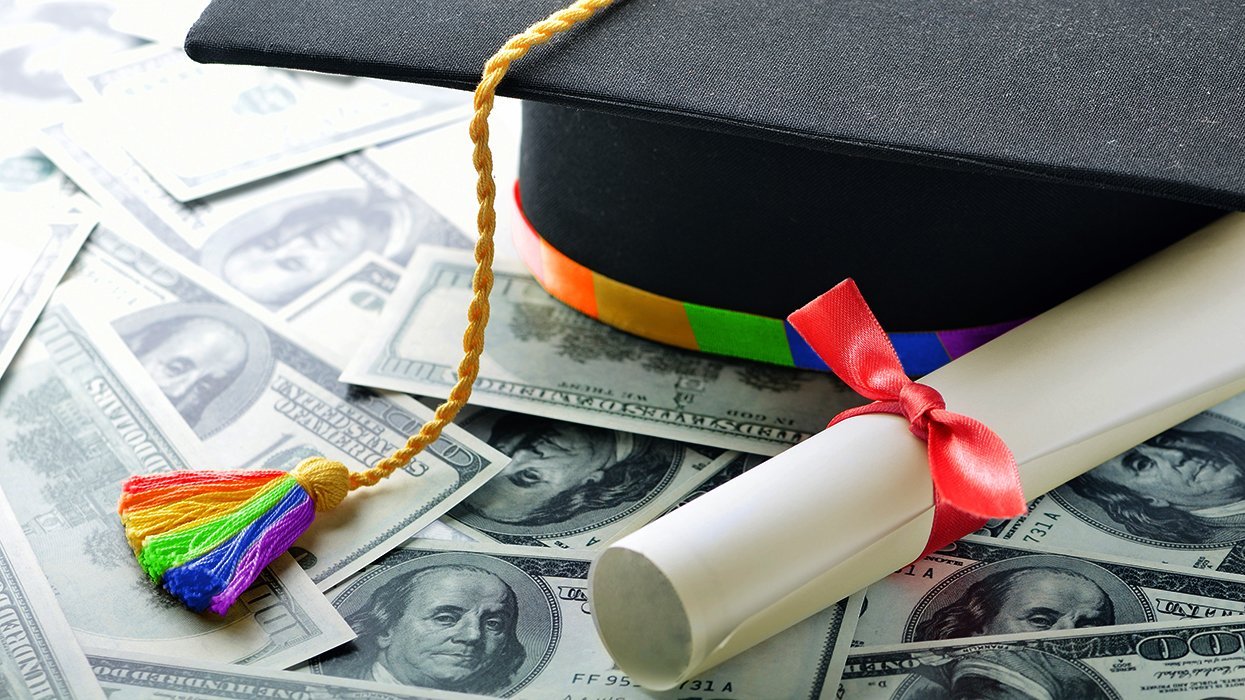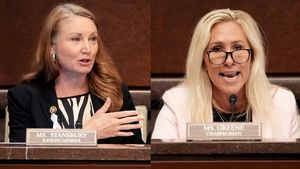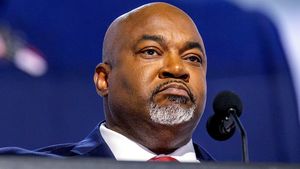About 35 percent of queer Americans between the ages of 18 and 40 have student loans, according to The Williams Institute, an LGBTQ+ think tank. With some current relief programs on the chopping block – and queer people reporting an average of $16,000 more in education debt – borrowers should brush up on how their payments might change this year, as well as what they can do to prepare.
Student loans have had more lore than a Housewives franchise these last few years, so let’s do a quick recap. When COVID-19 arrived, federal student loan payments went on pause and remained there for about three and a half years. Balances didn’t collect interest during this time, and when required payments resumed, borrowers were given an additional 12-month on-ramp period to get themselves together.
Here, “on-ramp” meant that, if you missed a payment, you wouldn’t be delinquent on the debt, which is good, because delinquency drags down your credit score. Yes, credit scores suck, but they also determine your eligibility for various loans and even apartment leases in some cases, so keeping an eye on yours can make your financial life a bit easier (You can check yours online for free).
Now that the on-ramp is over, delinquencies have spiked past pre-pandemic levels; nearly one in six borrowers are currently past due on payments. Delinquency can drop your credit score by as much as 171 points, according to New York Fed estimates, and if a student loan stays delinquent for 270 days, it goes into default, in which more of or even the entire balance immediately comes due. Not cute.
Another wrench here is that the Biden administration’s Saving On A Valuable Education (SAVE) plan, which rolled out in 2023, was blocked by a U.S. appeals court back in February. SAVE capped a borrower’s minimum payment at 5 percent of their monthly income, down from 10 percent, so for the 8 million borrowers who had enrolled, their payments will likely go back up soon, which could make delinquency rates even worse.
Additionally, President Trump signed an executive order last month saying that, for the purposes of public service loan forgiveness (PSLF), his administration would seek to revise the definition of “public service” to exclude organizations involved in immigration or gender-affirming care. The order is not only cruel, but also a shock to workers who are well into their ten years of public service necessary to be eligible. In a press release, the Williams Institute’s Brad Sears said nearly one-quarter of LGBTQ+ adults are employed in public or nonprofit sectors, industries that would qualify for PSLF.
Meanwhile, student loan naysayers love to chide borrowers for taking on debt without a plan to pay it back. But with the cost of college up 58 percent over a 20-year period, many young people and their families have to finance the cost of higher education to get a leg up, particularly if they want to pursue a career that requires technical training. One reason queer people often take out more in student loans is that they use college as a vehicle to move further away from an unwelcoming home environment or community.
Our higher education system needs systemic change if we want future generations of queer people to prosper. For the time being, though, there will probably be no RuPaul chocolate bar or Badonka Dunk Tank to bail us out this season, so if you have student loans, you should take a few actions now to avoid financial turmoil later.
First, keep an eye on current repayment plans as they evolve. These include the Income-Driven Repayment (IDR), Income-Based Repayment (IBR), Pay As You Earn (PAYE), and Income-Contingent Repayment (ICR) plans. These plans help lower your minimum payments, and their applications were paused in February, before suddenly opening again on March 26, because apparently our word for 2025 is “whiplash.” Check the Federal Student Aid website for the most up-to-date information.
Also look into other areas of your life where you could trim down current expenses. Maybe put a subscription or two on pause; generally, with recession fears abound, it’s good to free up cash for savings.
Last, if haters in your life are giving you shit about your student loan debt, don’t let it get to you. I went to six years of college for classical music, had debt for ages, and don’t regret a thing. Studying the arts gave me critical thinking skills and social skills that have made my life richer in so many ways, and have helped me throughout my career. I also found myself as a gay person in college, learning that is truly priceless. Resist the urge to resent learning and personal growth because of your student loans. Lifelong learning is joyous.
Stay close to the current student loan smackdown so that, when changes roll out in the coming months, you’ll be financially ready to roll.
Nick Wolny is Out magazine’s finance columnist. He writes Financialicious, a personal finance newsletter tailored toward queer readers, and is working on his first book, Money Proud, which releases later this year. NickWolny.com @nickwolny






































































